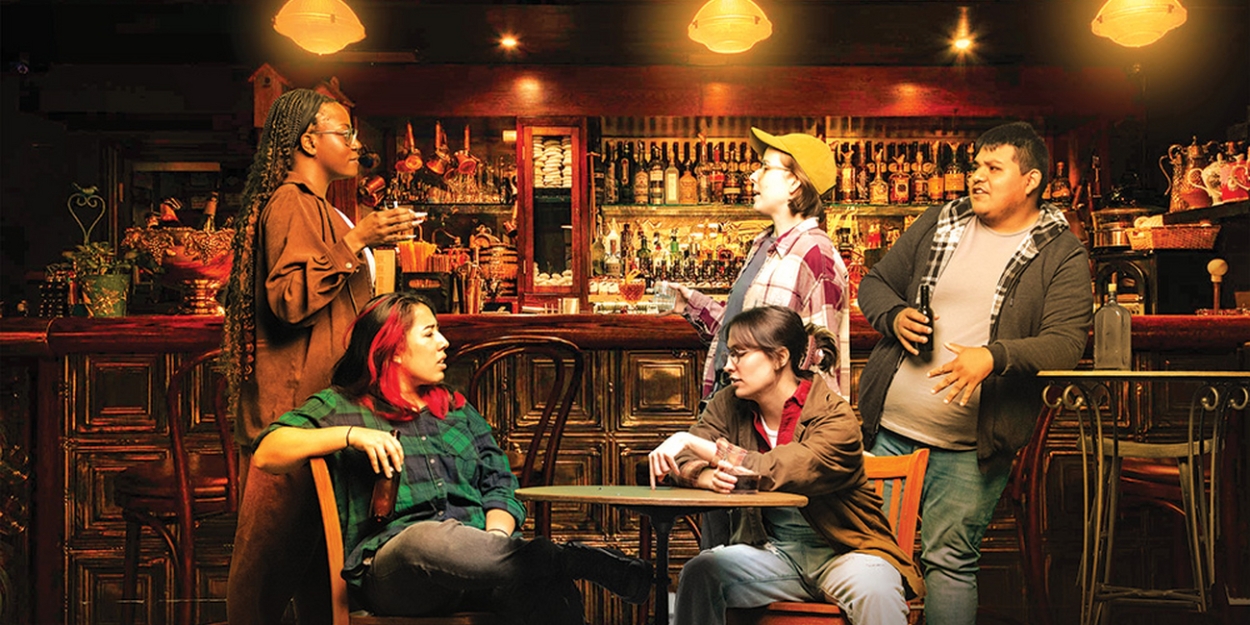Kennesaw State University to Present Pulitzer Prize-Winning SWEAT in October
A gripping exploration of race, class, and friendship.

Kennesaw State University's Department of Theatre and Performance Studies will present Lynn Nottage's Pulitzer Prize-winning play "Sweat" in the Onyx Theater, October 3-8. Tickets are $10-$12 and are available online or by calling Patron Services at 470-578-6650.
Fighting to Stay Afloat
Filled with warm humor and tremendous heart, "Sweat" tells the story of a group of friends who have spent their lives sharing drinks, secrets, and laughs while working together in a factory. But when layoffs and picket lines begin to chip away at their trust, the friends find themselves pitted against each other in a heart-wrenching fight to stay afloat. For two and a half years, Nottage extensively interviewed Reading residents; in 2011, a report ranked Reading as the poorest city in the nation.
A Stacked Deck
The Pulitzer Prize Board selected "Sweat" in 2017 because it was "...a nuanced yet powerful drama that reminds audiences of the stacked deck still facing workers searching for the American dream." Jacqueline Springfield, Director and TPS Assistant Professor of Acting, explains that "people all over the world-but especially Americans-felt the same way, that they've been sold something that, at the end, came not to be true for them."
The Struggle is Real
Nottage was surprised at how much struggling she encountered in manufacturing towns, explains Tom Fish, TPS Assistant Professor and "Sweat" Dramaturg. "This is important because it led to the great recession-and so much was based on the lie that 'this is the prosperity you can have if you work hard-but corporate greed was running to the bank and ended up catching all of America."
A Personal Journey
Costume designer Amanda Mattes can relate; her grandfather worked at Bethlehem Steel, which closed in 2002, and her aunt Vicky (affectionately called Aunt Tori) worked on the assembly line at Mack Truck outside of Reading. The play is a very personal journey for Mattes, and Aunt Tori was the inspiration for the character Tracy. "The play is about clashing and the loss of solidary, the loss of support that you felt from your country. Aunt Tori was a victim as her father couldn't afford to pay for college, so she worked in a trade as she was paid more; she was very blue collar but a very hard worker," explains Mattes.
American Dream or Nightmare?
In Reading, Nottage began to dwell on the fact that a lot of people felt disenfranchised and were struggling economically. What they had been told was the American dream-if you strive for it-was turning out to be a nightmare. "People talked about Reading in the past tense; there was this real sense that hope had been lost," says Springfield, yet "the story itself is a brilliant examination of how we got to where we are now and why it's still relevant. The themes and characters will resonate with a large portion of our audience as they are compelling and familiar."
Disenfranchised, Left and Right
Fish says that the final stage direction "refers to the actors being in 'fractured togetherness' and that resonates today, as both the political right and left both feel very disenfranchised. We hope to create a dialogue because we don't have a simple solution." Springfield adds that the play "doesn't answer any questions but asks if we can find solutions. This is important, for patrons and students, to have that discussion."
Student-Driven Production
The fully staged production in the Onyx Theater features a cast of eight students, plus understudies, as well as student set, sound, and lighting designers. Springfield explains that the "students in the cast range from first year to seniors; some are acting, and some are musical theatre. We like to provide a broad range of activities for our students as a learning experience, with performance opportunities."
Students Can Relate
Mattes is also working with two student assistants. Toggling between 2000 and 2008, the students have researched fashion as it jumped from "Y2K Vintage" to "Recession Core," seen in muted tones and less fabric, giving rise to the birth of the skinny jeans. She explains that many of the students were born after 2000, but "they understand the stress now as college students, often watching grants, scholarships, and wages disappear right in front of them."
Learning Opportunity
Springfield notes that it's an incredible learning opportunity for the students. "What history has led us to is now our current political and economic situation, so it gives the students context for what is happening today. The characters are complex, and I've seen such growth in these students."
Tickets for "Sweat" are on sale now; seating is very limited. Learn more about the Department of Theatre and Performance Studies.
Comments

Videos


